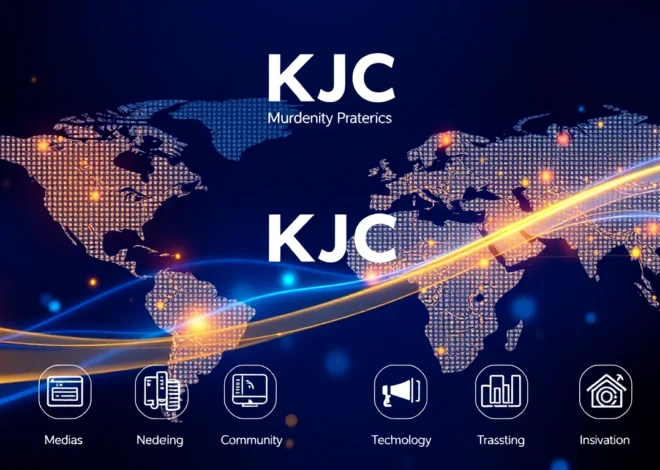
Comprehensive Strategies for Effective Vancouver Strata Management in a Competitive Market
Understanding the Fundamentals of Vancouver Strata Management
Definition and Key Components of Strata Management
Strata management in Vancouver refers to the comprehensive administration of multifamily residential, commercial, and mixed-use communities that operate under the strata property ownership model. Essentially, it involves overseeing the day-to-day operations, maintenance, financial management, and governance of strata corporations—groups formed by individual property owners within a shared community. The core components of strata management encompass managing the common property and assets, ensuring legal compliance, facilitating effective communication between residents and the strata council, and maintaining the overall quality and value of the community.
At its foundation, strata management includes responsibilities such as maintaining shared facilities (like lobbies, elevators, and recreational areas), managing service contracts, handling security, and executing routine repairs. Financial components involve preparing budgets, collecting strata fees, and overseeing expenditures. Administrative tasks include convening meetings, maintaining records, and enforcing by-laws. When managed effectively, these components work synergistically to create a harmonious living or working environment, safeguard investments, and promote community well-being.
For property owners and residents seeking a seamless experience, partnering with a trusted vancouver strata management provider ensures that all these components are handled professionally, with attention to detail and regulatory compliance.
Legal Framework and Regulatory Requirements in BC
The operations of strata corporations in British Columbia are governed by the Strata Property Act (SPA), a comprehensive legislative framework designed to regulate the formation, management, and dissolution of strata communities. This legislation stipulates the duties and powers of strata councils, rights of individual owners, and responsibilities of licensed strata managers. Key provisions include rules for convening meetings, voting procedures, dispute resolution, and financial transparency.
Strata managers in Vancouver must operate within this legal context, ensuring compliance with statutory obligations such as preparing annual budgets, maintaining accurate records, and adhering to disclosure requirements. They are also tasked with ensuring that the strata corporation complies with other laws, including fire safety regulations, building codes, and health standards.
Recent updates to British Columbia’s regulations have emphasized sustainability and transparency, requiring strata managements to adopt eco-friendly practices and facilitate open communication channels with owners and residents. Strata management firms must also hold a valid license issued by the British Columbia Financial Services Authority (BCFSA), which validates their qualifications and adherence to industry standards.
Roles and Responsibilities of Strata Managers
Strata managers serve as pivotal facilitators between the strata council, property owners, and residents. Their roles include strategic planning, operational oversight, financial management, and legal compliance. They act as the eyes and ears of the community, implementing the decisions made by the strata council and ensuring the community’s day-to-day functions run smoothly.
Key responsibilities encompass preparing budgets, collecting strata fees, managing maintenance contracts, and overseeing vendor relationships. They also coordinate meetings, enforce bylaws, and handle complaints or disputes with professionalism and impartiality.
Beyond administrative duties, top-tier strata managers proactively identify potential issues—such as aging infrastructure or legal non-compliance—and recommend preventive measures. They also play a vital role in fostering community engagement through transparent communication and conflict resolution.
An experienced strata manager, especially when combined with innovative technology, can significantly impact the longevity of the property, resident satisfaction, and overall community harmony.
Best Practices for Small and Large Strata Communities
Tailoring Management Solutions to Strata Size
The approach to strata management must be tailored to the size and complexity of the community. Smaller strata communities, such as boutique condos or townhouse complexes, often face unique challenges—limited budgets, fewer dedicated volunteers, and less onsite administrative support. In contrast, larger communities like high-rise towers or extensive commercial complexes require sophisticated systems to manage high transaction volumes and diverse resident needs.
For small strata, personalized, flexible service models are key. These may include simplified reporting, direct communication channels, and cost-effective maintenance solutions. Metrowest Building Services recognizes that a small strata can have a big impact on residents and should receive the same level of professional care as larger communities. Customized management strategies—focused on efficiency, community engagement, and financial prudence—are essential for optimizing sustainability and resident satisfaction.
Larger communities benefit from integrated management software, dedicated team staffing, and comprehensive governance frameworks that support complex operations. Whether it’s implementing automated financial systems or scheduling routine maintenance via digital platforms, technology enhances operational efficiency and transparency across the board.
Maintaining Property Value and Resident Satisfaction
A fundamental goal of effective strata management is preserving and enhancing property value while fostering a positive community environment. Regular maintenance, transparent financial management, and proactive repairs contribute significantly to property appreciation.
Strategies such as routine capital improvement planning, transparent budgeting, and clear communication channels nurture trust and community cohesion. For example, implementing a timely and well-managed reserve fund can cover unexpected repairs without imposing unanticipated financial burdens on owners, thereby maintaining stability and confidence in the community.
Resident satisfaction hinges on perceived fairness, responsiveness, and quality of amenities. Regular community engagement events, clear policies, and a responsive management team create a vibrant, well-functioning community.
Case Study: A Vancouver high-rise community increased owner satisfaction scores by 20% after implementing a digital portal for maintenance requests and financial updates, exemplifying how tailored solutions and effective communication can elevate the resident experience.
Implementing Cost-Effective Maintenance Strategies
Maintenance is often the largest expense for strata communities, but strategic planning can reduce costs without sacrificing quality. Conducting regular property audits helps identify potential issues early, allowing for timely repairs that prevent more costly future interventions.
Bulk purchasing, long-term vendor relationships, and preventative maintenance schedules increase efficiency and affordability. For instance, adopting energy-efficient lighting and HVAC systems not only reduces operational costs but also aligns with sustainability goals.
Transitioning to digital maintenance tracking systems can further improve cost control, scheduling, and transparency—keeping residents informed and management accountable.
Choosing the Right Vancouver Strata Management Partner
Criteria for Evaluating Management Firms
Selecting an appropriate strata management company requires careful evaluation of multiple criteria. Key considerations include: industry experience, local market knowledge, licensing and regulatory compliance, technological capabilities, client references, and service flexibility.
An ideal partner should demonstrate a deep understanding of Vancouver’s local regulatory environment, have a proven track record of managing similar communities, and possess a proactive approach to problem-solving. Reviewing case studies and feedback from existing clients can provide insights into their performance.
Understanding Fees and Service Inclusions
Transparency around fees is crucial. Strata management fees typically include strata council support, administrative services, financial reporting, and regulatory compliance. Additional services—such as landscaping, cleaning, or legal support—may be billed separately.
When comparing firms, request detailed proposals that outline all inclusions and potential extra costs. Be wary of low-ball quotes that hide extra charges; a reputable management company clearly articulates its service scope.
Asking the Right Questions During Selection
Engage potential strata managers with targeted questions, including: How do they handle emergency repairs? What technology platforms do they use? How do they ensure regulatory compliance? How do they facilitate community engagement? What are their communication protocols?
An experienced management partner will provide clear, detailed answers and demonstrate transparency, professionalism, and a focus on community well-being.
Innovative Technologies and Modern Management Techniques
Utilizing Software for Financial and Maintenance Tracking
Modern strata management relies heavily on specialized software platforms that integrate financial reporting, expense tracking, and maintenance scheduling. Cloud-based systems enable real-time access for property managers, strata councils, and residents, fostering transparency.
Leading software solutions include features like electronic voting, digital document storage, and automated reminders, streamlining processes and reducing administrative overhead.
Enhancing Communication with Residents via Digital Platforms
Digital communication tools—such as resident portals, messaging apps, and email updates—are transforming community engagement. They facilitate quick dissemination of information, emergency alerts, and feedback collection, increasing transparency and trust.
Implementing these platforms encourages resident participation and feedback, leading to more informed decision-making and higher satisfaction levels.
Data-Driven Decision Making for Community Improvements
Utilizing data analytics from management systems allows stakeholders to identify trends, prioritize repairs, and optimize resource allocation. For example, analyzing maintenance request frequency can reveal systemic issues requiring attention or upgrades that improve overall community quality.
Data-driven strategies enable proactive management, cost savings, and tailored community programs targeted to residents’ needs.
Future Trends in Vancouver Strata Management
Sustainable Building Certifications and Eco-Friendly Practices
Sustainability is increasingly vital in property management. Vancouver communities are adopting green building certifications such as LEED or BOMA BESt, which focus on energy efficiency, water conservation, and sustainable materials.
Strata management firms are integrating eco-friendly practices—like solar energy, smart thermostats, and waste recycling programs—that reduce environmental impact and operational costs, attract eco-conscious residents, and enhance market value.
Adapting to Demographic Changes and Remote Management
Vancouver’s diverse population and ongoing demographic shifts necessitate adaptable management approaches. Remote management technology allows oversight of multiple properties without physical presence, facilitating efficient oversight in a post-pandemic landscape.
Virtual meetings, online maintenance requests, and digital documentation enable flexible management, especially for communities with aging populations or high mobility.
Focus on Resident Wellness and Community Building Initiatives
Future trends emphasize holistic resident wellness—mental, physical, and social. Management strategies include creating communal spaces, wellness programs, and community events to foster engagement and a sense of belonging.
Integrating technology to support health and safety, such as touchless entry and air quality monitoring, further enhances overall community well-being.

